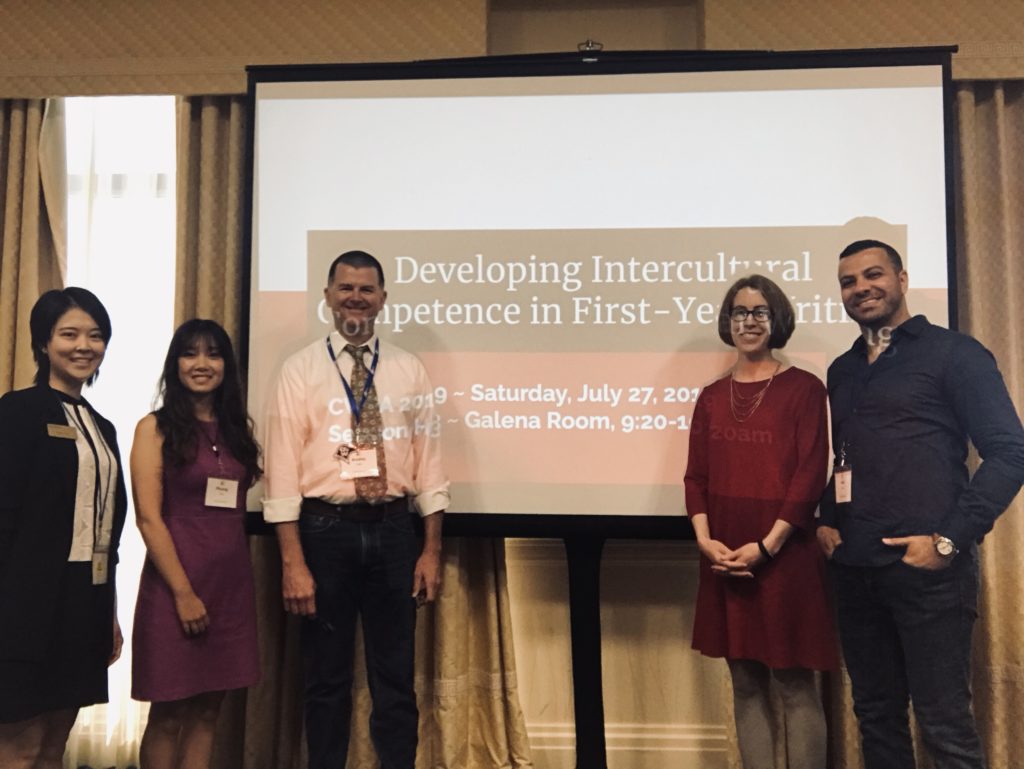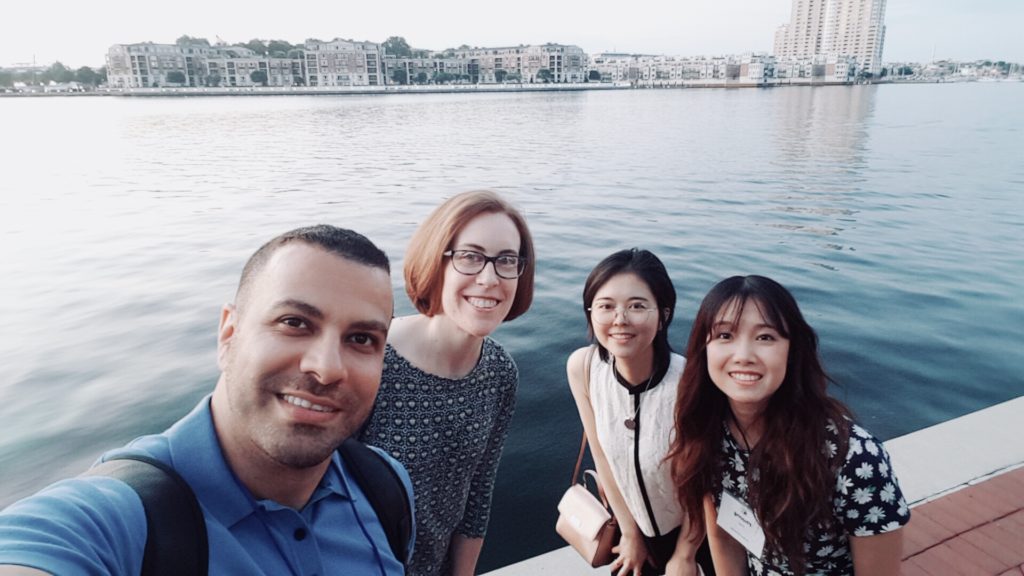The Transculturation Lab presented at CWPA in Baltimore (July 25-28) their pilot results of assessing intercultural competence development in linked domestic and international sections of First Year Writing. The team discussed evidence-based, inexpensive interventions to internationalize writing programs, focusing on intercultural competence development and transfer of writing skills.

Phuong Tran gave an overview of the project’s interventions and the curriculum we adopted. She rationalized the suitability of First Year Writing as a context for internationalizing writing programs especially at institutions whose demographics necesitate inclusion and cross-cultural interaction. Dr. Dilger then discussed team building strategies and the model we implemented to create a community invested in intercultural problem-focused approaches to teamwork. Dilger recommended balancing individuals’ needs to maximize professional development and team productivity. Echo Yan presented on the research methods we adopted to assess intercultural competence development.Yan outlined the sources of data collection and explained how we validated our grounded thematic coding scheme through the work that both graduate and undergraduate student researchers did. Both Rebekah Sims and Hadi Banat shared the results from both the thematic coding of reflective writing and the mapping of reflective content along the Developmental Model of Intercultural Sensitivity. They shared the main trends we noticed in the pilot results and also analyzed two case studies that did not align with the main trends. They then reflected on their practices as teacher researchers and discussed how these reflections shaped their curriculum, pedagogy, and research. Dilger, Sims, and Tran concluded the talk by sharing curricular, team-building, programmatic, and assessment recommendations with WPAs who are keen on implementing the same work in their own institutional contexts.
During the Q & A and our conversations with attendees, we learned the following:
- There was a keen interest in the theme of student resistance and how classroom instructors handle it and respond to it.
- Attendees asked about how we teach reflective writing, how we respond to it, and how we evaluate it.
- Attendees asked about student perceptions of the curriculum and its various interventions.
- The interest in the multicultural reader has inspired us to elaborate on our choices of reading materials for future presentations.
- The audience were curious about team building strategies.
- Attendees asked about the types of mentoring we received and provided.
- The WPAs in the room asked about the logistics of administering the linked course model.

In addition to the time we spent in sessions and networking with other scholars and peers, we did not forget to enjoy the scenic inner harbour of Baltimore and the multicultural cuisines in the city. At the end of the conference, CWPA organizers took us on a trip to the American Visionary Art Museum where we enjoyed snacks, desserts, and beer before we took a tour of the museum and admired its unique pieces. Through this social event, we also met new friends and had entertaining conversations outside the realm of academia.
Our undergrad research intern, Yiqiu Echo Yan, wrote the following reflection:
“I am very blessed to have had the opportunity of attending CWPA 2019 with the Transculturation Lab team. This conference not only helped me understand how scholars presented in front of the public but also taught me to be a professional presenter. Although I have worked in the research team for a semester and received extensive training on data coding, I was not fully prepared to talk about this project in front of a broader audience.
This conference gave me a chance to reflect on the work I had done in the lab, allowed me to further comprehend the research theories that supported the project, and helped me to critically evaluate the data analysis work I had done. Through my interactions with my co-researchers, I realized how important reflective thinking is for becoming a great researcher. I feel lucky that my team and institution offer me the opportunity to engage in critical reflection of my own practices.
At the conference, I was especially interested in talks by scholars on the topic of transculturation, internationalization in academia, and online education. It was such a pleasure that I could look up to these scholars and their pilot studies. It encouraged me as a researcher and also as an undergrad student to consider pursuing a higher degree in a related field.”